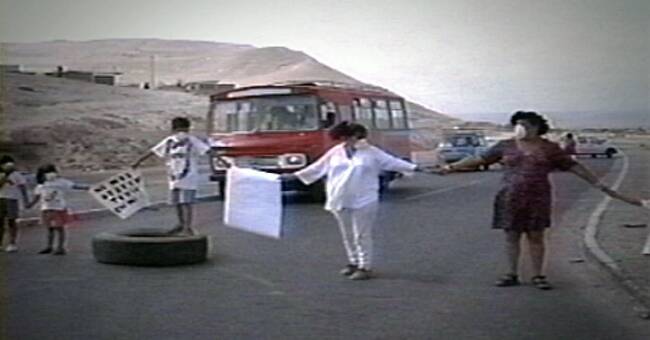The company Boliden transported large quantities of environmentally hazardous waste, probably close to 20,000 tonnes, to northern Chile and the area around the city of Arica during the 1980s.
A local company that would be responsible for the final handling went bankrupt.
The UN Human Rights Council has examined the case, and came out with a report on Sunday which shows that thousands of people are considered to have suffered severe injuries from the waste such as cancer, cough and fertility, reports Swedish Radio Ekot.
The issue has previously been examined and also dealt with by the judiciary in both Sweden and Chile.
The question has also been brought up in the Swedish documentary Blybarnen, a Swedish poison scandal, from 2009.
Should not be prescribed
UN rapporteur Marcos Orellana, specializing in environmental toxins and human rights, comes to sharp conclusions in the UN Council's 15-page report, formally written as a letter that is expected to receive a response.
One issue that is being discussed is legal responsibility.
Orellana and the other UN rapporteurs who participated in the investigation believe that the cases are not statute-barred.
The reason is that the harmful effects and consequences of environmental toxins last for a long time.
The rapporteurs refer, among other things, to rulings in the European Court of Justice.
The rapporteurs see it as necessary that the waste is returned to Sweden, or alternatively taken care of in Chile.
Those affected should also receive help.
Swedish answer
The Swedish Ministry of Foreign Affairs and its press service make an initial comment on the report:
“The government has rejected demands that Sweden take measures concerning wetland sludge.
It has been a long time since this happened and the matter has been the subject of court proceedings in both Sweden and Chile. ”
In the Swedish response to the UN special rapporteurs, the government emphasizes that it also views with concern the situation in Arica as described by the UN.
"It is deeply regrettable that the site in question is not free of toxic chemicals," the government wrote, stressing that it was working actively to "implement the UN's guiding principles for business and human rights."
However, those affected in Arica are somewhat relieved by the UN report.
- We are very moved here today, it is the first time that it is officially established that this is a violation of human rights, says Rodrigo Pino who is the spokesperson for affected families to Swedish Radio Ekot.

